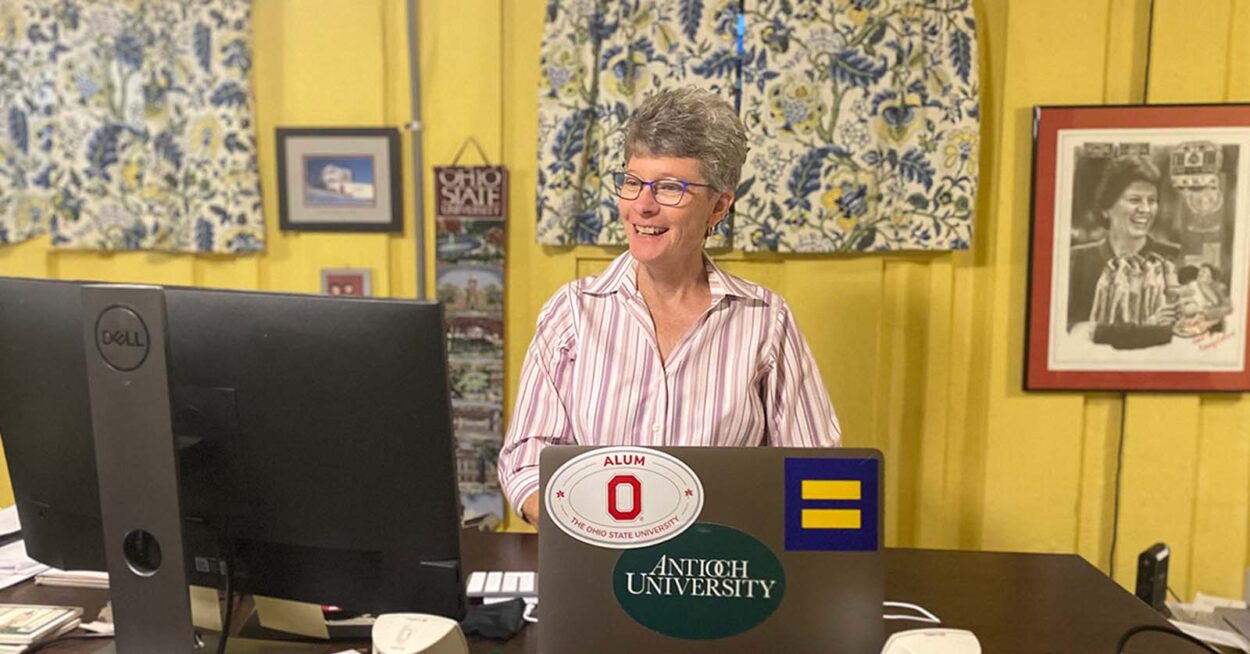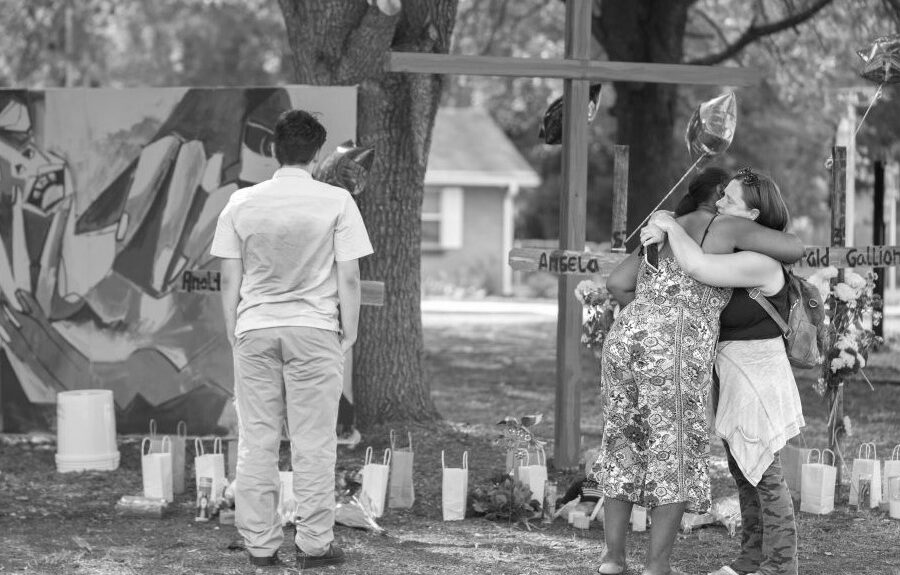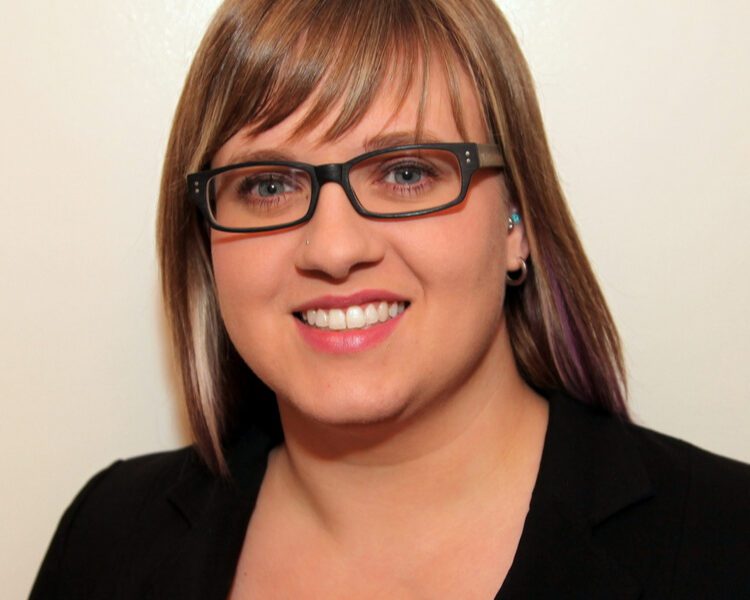A few years ago, Mary Ann Short called an HR representative to resolve an insurance issue. It was one of those phone calls that you put off, and then on the day you actually make the call, as the phone rings, you prepare yourself for a complex negotiation. To say she was not expecting a life-changing experience would be an understatement. But then she got through to the representative, and the rep asked her if she was the Mary Ann Short, the one who teaches in the graduate management programs at Antioch University. The rep told Short that she was a former student—and that she was in her current position because of one of the training programs Short had personally set up.
Short marveled at the coincidence of running into a former student in such a random way. She said, “You made my day.”
“You made my life,” responded the former student—surprising both of them with her heartfelt gratitude, right there on a recorded line.
Today, when she thinks back to her former student’s sentiment, it still brings tears to her eyes. “I didn’t see myself as a leader,” Short says. “But clearly, I was providing opportunities for individuals that they now got to take advantage of.”
This interaction and others like it have helped Short take ownership of how much of an impression she has made on the lives of other people. This dovetails with the positive feedback she receives from her colleagues, such as Chet Haskell, Vice-Chancellor for Academic Affairs and University Provost, who says, “Mary Ann is a tireless academic leader in the development of Antioch’s graduate management programs… I value her dedication to Antioch, to her students, and to her colleagues.”
But the interaction touched something deeper: a life’s mission to bring education to the underserved and those who have trouble accessing it. And it’s evidence that the main innovation she’s led—online education—is working.
It’s working so well, in fact, that she has just been named Antioch University’s Associate Dean for Distance and Extended Education. As the Dean of that school, Terry Ratcliff, explains, “Mary Ann is very knowledgeable and a strong proponent of online and adult teaching and learning. I look forward to her increased involvement in these areas at Antioch.”
A Leadership Path Paved with Passion
Short’s career hasn’t been a straight shot to this current role. Before starting to work in higher education, Short trained to be an accountant and a banker, and she worked in various corporate positions. But she found that her passion was in education and leadership. “I’m an educator,” she says. “I’m all about learning.”
It’s an enthusiasm that comes through in everything she does. Even while on vacation, her friends call her the “tour guide” because she loves doing the research to find the most desirable and educational tourist destinations.
Short received her PhD in Human Resource Development/Organizational Development from The Ohio State University in 1997. At first, she applied her interest in educating leaders within the corporate world, serving for two years as a manager of learning and development in financial services. But soon she found herself shifting to academia. She took a faculty role at Franklin University, and then, in 2013—following a brief return to the corporate world—she took a faculty role at Antioch University.
Short has served in multiple roles at Antioch over the last decade. Before taking her recent role as Associate Dean, she was Director of Graduate Management Studies and Chair of the Masters in Human Services Administration.
One uniting thread in all of her teaching is educating students not just to be good employees but also to be leaders in their own ways. “I think the first and most important quality is that a leader must care about others, even more than themself and profits of the company,” she says. “It is through the process of building relationships in which you personally succeed, and the organization succeeds.”
Short has consistently advised students who want to advance into a leadership role to try to emulate the leaders they admire, to build on their strengths, and to seek situations where they can play these up. And, she adds, “I’m also a proponent of surrounding yourself with people who are smarter than you and who compliment you.”
Reaching Students through Online Education
Part of why Short has been drawn to teach at Antioch University is because all of its graduate management programs are offered through an online modality. This allows access for students from all walks of life. Short was instrumental in starting the first 100% online graduate degree program at Antioch, and she explains that in addition to being student-centered, online-only programs are wonderful because they can reach a broad diversity of students. Education becomes accessible to those working full-time jobs and also for those raising families. Despite differences in life experience and geography, students can come together to form a community where they can realize their goals.
“Access to online education can be life-changing for individuals because it affords them the opportunity to get an education that they might not otherwise be able to get,” Short explains. Some students can’t afford the time and travel it takes to participate in an on-campus or low residency program. Short proudly says, “An online education addresses all of those access issues.”
Additionally, there is no drop in the excellent quality of education that Antioch students receive in the online modality. “I think we still provide an Antiochian education,” she says. “You still have the personalized service, you still have access to faculty, you still have a curriculum that is focused on social, environmental, and economic justice—so you still get the key elements of being at Antioch.”
Understanding Where Students Are Coming From
Short values diversity and prioritizes working in an institution that allows you to come as you are. As she says, “We are comfortable with who we are, which makes us comfortable to have conversations that we might not otherwise want to have.” Subjects that might be taboo in other places of higher education are tackled head-on at Antioch.
“We’re not afraid to share and tell the world who we are,” Short says. “We are passionate about social justice. We’re not afraid to talk about whiteness and racism and the structural problems that we have in our communities, in our organizations, in our agencies.”
Short works to embody Antioch’s social justice mission and to model direct engagement with these questions. As Bob Lazzarini, faculty in Graduate Management Studies, explains, Short is “a collegial and inclusive leader who always puts students at the center of our work.”
Another colleague, teaching faculty member David Norgard, calls out the way that she balances the interests of everyone she provides guidance to. “She manages to lead our group of faculty in such a way that plays to each of our strengths and interests,” says Norgard. He adds, “What continues to impress me is her commitment to student success.”
Short also values the way students can learn from others who may be different from them. As she says, “Coming as you are, it just creates this rich environment for people to learn and grow, maybe in areas they didn’t even know they needed to learn and grow.” A major component of this type of learning is “listening first versus contributing first.” Regarding her interactions with students and faculty, Short says, “I do really try to listen to understand as opposed to listen to convince.”
It’s an area where she’s proud to show growth. “I thought I came in with a pretty broad perspective, and particularly in terms of working with students in education and providing opportunities,” says Short. “And I think I have been challenged along the way to even broaden that perspective.”
Access to Education as a Social Justice Mission
Short is passionate about the way that this work gives her space to honor each student’s prior education experiences while guiding them toward degree completion. For many students, getting a graduate degree is not only an accomplishment that their employer puts value on, but it also means the fulfillment of a personal goal. And when they go back to the organization that they are involved with, they become an agent for social change.
“Whether you’re active in your community, or whether you volunteer for an organization, or whether it’s for your family, you’re setting an example,” Short says. And she encourages this, because following your passion allows better longevity in a career—if you enjoy what you do, it doesn’t feel like work.
While Short is passionate about leadership and learning, it is her students that keep her most inspired. “We’re never too old to learn,” she says. “The oldest student I’ve had was 72. And to think that she’s looking to get her undergraduate degree at 72, how inspiring is that?”
One of the ways she shows her commitment to student success is by this very act of providing access to education. She explains that this is her central social justice mission. “That’s what I do in education,” she says. “Standing up for the underdog—and making sure that that perspective is heard and represented and has an opportunity.”
Short is passionate about helping adults find degree completion and eliminating barriers to doing so. She wants to make a graduate degree an achievable goal for anyone who has that desire.
“We have a very streamlined application process into our graduate program,” says Short. “We don’t require four letters of recommendation. We don’t require an application fee. We remove all the potential barriers that would stop an individual from entering and pursuing a degree.”
A mission as big as bringing education to those who most need and who might be otherwise excluded is not one that can be completely accomplished in a year—or even over the course of a whole career. But when Short set down the phone after talking to her former student who told her, “You made my life,” it was clear at least that for one student, she had made that difference. It’s something that she continues to carry forward.






